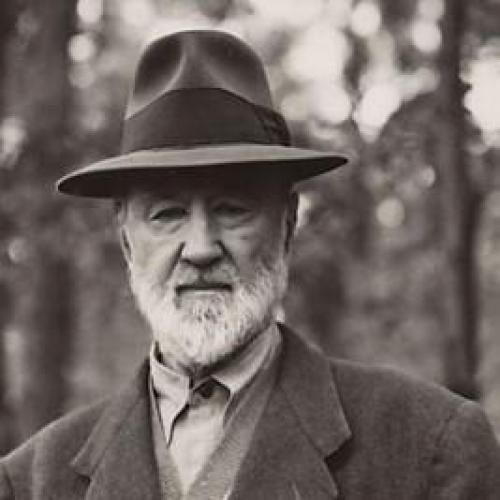Charles Ives - Nov. 2, 1920
But, over there our men did not quit
They fought and died that better things might be!
Perhaps some who stayed at home are beginning to forget and to quit
The pocketbook and certain little things talked loud and noble
And got in the way; too many readers go by the headlines
Party men will muddle up the facts
So a good many citizens voted as grandpa always did
Or thought a change for the sake of changе seemed natural enough
"It's raining, lets throw out thе weather man
Kick him out! Kick him out! Kick him out! Kick him out! Kick him!"
Prejudice and politics, and the stand-patters came in strong
And yelled, "Slide back! Now you're safe, that's the easy way!"
Then the timid smiled and looked relieved
"We've got enough to eat, to hell with ideals!"
All the old women, male and female, had thier day today
And the hog-heart came out of his hole
But he won't stay out long, God always drives him back!
Oh Captain, my Captain!
A heritage we've thrown away;
But we'll find it again, my Captain, Captain, oh my Captain!"
Song Description:
edit soundcloudSoundCloud:
edit soundcloudMore Charles Ives lyrics
Charles Ives - The Love Song of Har Dyal
Alone upon the housetops to the North I turn and watch the lightning in the sky The glamour of thy footsteps in the North Come back to me, Beloved, or I die! Below my feet
Charles Ives - August
For August, be your dwelling thirty towers Within an Alpine valley mountainous Where never the sea-wind may vex your house But clear life separate, like a star, be yours There
Charles Ives - Crossing the Bar
Sunset and evening star And one clear call for me! And may there be no moaning of the bar When I put out to sea But such a tide as moving seems asleep Too full for
Charles Ives - December
Last, for December, houses on the plain Ground floors to live in, logs heap'd mountain high Carpets stretched and newest games to try Torches lit, and gifts from man to man
Charles Ives - Die Lotosblume
Die Lotosblume ängstigt Sich vor der Sonne Pracht Und mit gesenktem Haupte Erwartet sie träumend die Nacht Der Mond, der ist ihr Buhle Er weckt sie mit seinem Licht
Charles Ives - From "Paracelsus"
For God is glorified in man And to man's glory vowed I soul and limb Yet, constituted thus, and thus endowed, I failed I gazed on power till I grew blind... What wonder if I
Charles Ives - Grantchester
Would I were in Grantchester, in Grantchester! Some, it may-be, can get in touch With Nature there or Earth or such And clever modern men have seen A Faun a-peeping through the
Charles Ives - When Stars Are in the Quiet Skies
When stars are in the quiet skies Then most I long for thee; O bend on me then thy tender eyes As stars look down upon the peaceful sea For thoughts, like waves that glide by
Charles Ives - West London
Crouch'd on the pavement, close by Belgrave Square A tramp I saw, ill, moody, and tongue-tied A babe was in her arms, and at her side A girl; their clothes were rags, their feet
Charles Ives - Hymn of Trust
Love Divine, that stoop'd to share Our sharpest pang, our bitt'rest tear O Love Divine, we smile at pain while Thou art near Though long the weary way we tread And sorrow
YouTube
Charles Ives
